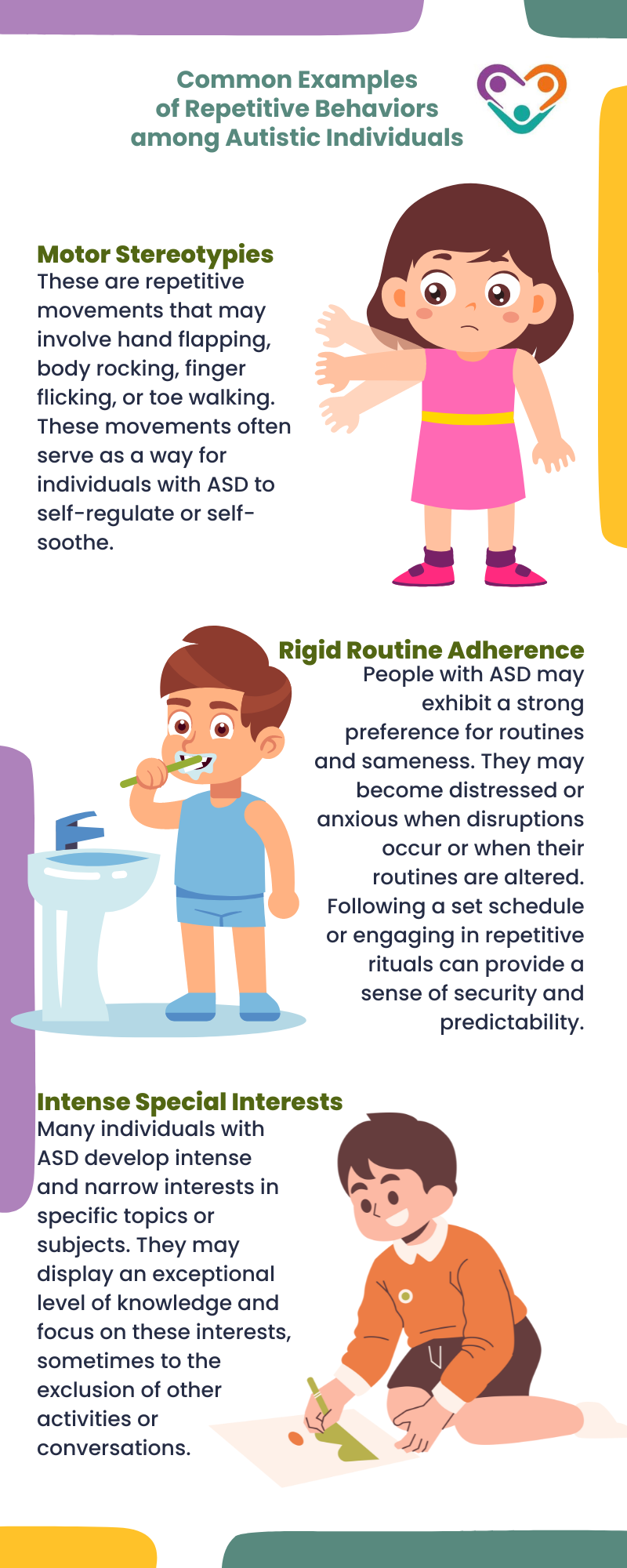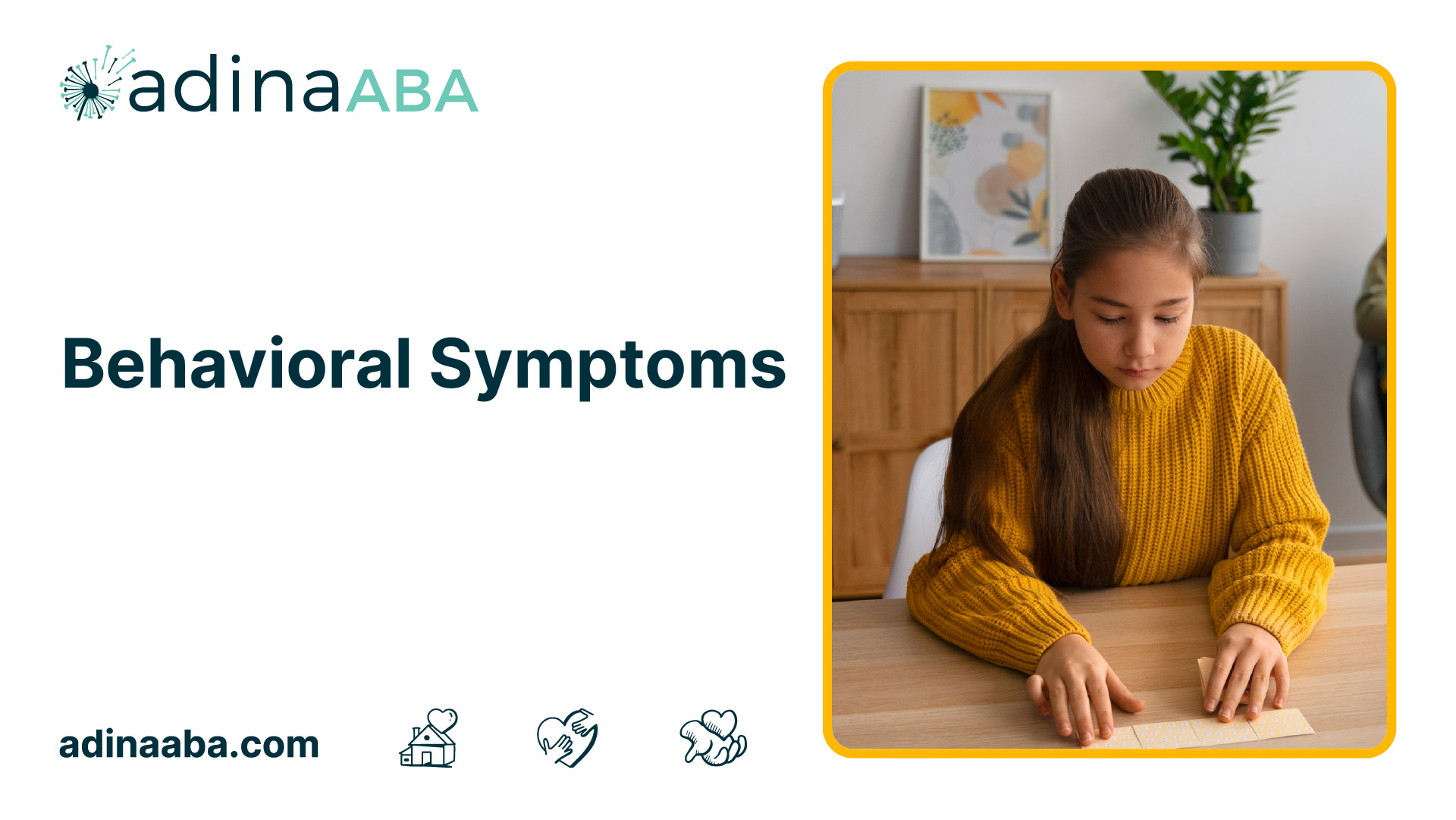Key Signs and Symptoms to Recognize in Individuals With Behavioral Autism
When you experience someone with behavioral autism, identifying vital symptoms and signs is important. You may observe difficulties in social communications and interaction, along with a solid requirement for regimens. In addition, sensory level of sensitivities can bring about frustrating experiences. Understanding these qualities can improve your support and interventions, yet there's even more to discover about how these actions show up in daily circumstances. Allow's explore what these indications really look like.
Difficulties in Social Communications
When you connect with a person on the autism spectrum, you could observe they have a hard time with social hints and interaction. These difficulties can make social interactions feel frustrating for them. You may see them avoiding eye contact or standing too close or as well far throughout conversations, which can create misunderstandings. They could not notice body movement or face expressions, making it harder for them to assess exactly how others are feeling.
Additionally, you may discover that they like regimens and familiar settings, which can restrict their willingness to participate in new social scenarios. When they do involve, they may speak about their passions in great detail without discovering if you're interested. This can lead to prejudiced discussions that leave you really feeling disconnected. Comprehending these obstacles can help you come close to communications with empathy and persistence, promoting an extra comfy environment for both of you.
Difficulty With Verbal and Non-Verbal Communication

Non-verbal communication can be even a lot more challenging. You could see a lack of eye contact or restricted use of motions, which can make interactions feel unpleasant. Facial expressions might not constantly align with the discussion, causing confusion concerning their feelings. Identifying these indications is important, as it aids you much better assistance and engage with people on the autism range. By understanding their communication difficulties, you can cultivate much more purposeful connections and give a much more encouraging environment.
Repeated Actions and Regimens
Communication obstacles frequently go along with various other indicators of autism, such as recurring habits and a solid choice for regimens. You could observe that people with autism frequently participate in certain, repetitive actions, like hand-flapping, rocking, or repeating phrases. These habits can give convenience and a sense of control in an often overwhelming globe.
Routines are equally vital; numerous people thrive when they follow a structured schedule. You might discover that modifications to these regimens can bring about substantial distress. For example, if they have a day-to-day ritual of eating morning meal at a details time or adhering to a specific path to college, any type of interruption can trigger stress and anxiety.
Identifying these patterns assists you comprehend their habits and offer support. By accommodating their need for regular and enabling repetitive activities, you can produce a much more comfortable setting that relieves their challenges.
Sensory Level Of Sensitivities

Typical Sensory Triggers
Sensory level of sensitivities can significantly impact daily life for individuals with autism, as certain stimulations commonly cause frustrating reactions. Typical sensory triggers include loud noises, intense lights, and solid scents. Comprehending these triggers can assist you manage your atmosphere much better.
Behavior Actions Described
Understanding your behavior reactions to sensory level of sensitivities is necessary, as they frequently disclose just how you communicate with the globe. You may additionally discover yourself seeking details sensory experiences, like deep pressure or quiet settings, to help ground yourself. Identifying these patterns helps you understand your requirements better and can direct just how you communicate them to others.
Coping Techniques Summary
Identifying your sensory sensitivities is just the primary step; now it's time to check out coping approaches that can help you manage those experiences successfully. Begin by developing a sensory toolkit tailored to your needs. This might include noise-canceling earphones, fidget playthings, or relaxing aromas. Establishing a structured routine can likewise give predictability, reducing anxiety around sensory overload. Take breaks in a silent space to regroup when you really feel overloaded. Practicing mindfulness methods like deep breathing can aid ground you in the moment. Furthermore, communicate your demands with those around you; having encouraging loved ones can make a huge difference. Remember, finding what works best for you may take time, so be open and patient to trying brand-new approaches.
Restricted Interests and Emphasis
While lots of individuals develop a variety of passions, those this hyperlink with autism commonly show restricted rate of interests and an intense concentrate on certain topics. You could see that a person with autism can invest hours delving right into their favorite topic, whether it's a certain kind of train, a particular flick, or a clinical concept. This extreme emphasis isn't just a leisure activity; it can end up being a main part of their identification and social interactions.
You might discover that conversations rotate around these interests, and they might struggle to participate in broader subjects. For them, these focused passions supply comfort and a feeling of proficiency. While it is necessary to urge exploration of brand-new topics, valuing their passions is just as important. By recognizing and recognizing these limited interests, you can promote a supportive atmosphere where they feel valued and recognized, enabling even more learn this here now purposeful connections and interactions.
Emotional Policy Problems
People with autism usually face challenges in emotional regulation, which can be affected by their extreme focus on certain rate of interests. You may observe that when an individual is deeply taken part in a preferred task, they can experience solid emotions, whether excitement or aggravation. This intensity sometimes makes it hard for them to shift gears or handle their feelings when points do not go as prepared.

Irregularity in Developing Turning Points
When it comes to developmental turning points, you'll notice that individuals with autism usually reveal a wide variety of irregularity. Some might strike turning points promptly, while others could drag or development at a various speed. For example, you may see a kid master language abilities yet battle with social communications. This incongruity can be confusing, as conventional criteria don't always apply.
It's necessary to acknowledge that each individual's journey is one-of-a-kind. Observing these patterns can assist you comprehend their strengths and requires much better.
Frequently Asked Inquiries
Just How Is Autism Identified in Children and Grownups?
To identify autism in children and grownups, experts examine habits, interaction skills, and social interactions. If a specific meets the standards for autism spectrum problem., they usually utilize standard tests, meetings, and observations to determine.
Exist Different Sorts Of Autism Spectrum Disorders?
Yes, there are various sorts of autism spectrum conditions, including Asperger's disorder and pervasive developing disorder-not otherwise specified. Each type varies in extent and attributes, so understanding these distinctions can help you much better support people with autism.
What Treatments Work for Individuals With Autism?
When taking into consideration reliable treatments for individuals with autism, you'll locate alternatives like Applied Actions Evaluation, speech therapy, and occupational therapy. Each strategy can help improve interaction, social skills, and day-to-day operating customized to specific requirements.
Can People With Autism Lead Independent Lives?
Yes, people with autism can lead independent lives. With the best support, skills training, and sources, you can aid them develop self-sufficiency, take care of daily tasks, and thrive in numerous settings, cultivating their self-reliance.
How Can Families Support Enjoyed Ones With Autism?
You can sustain your liked ones with autism by creating an organized setting, urging their rate of interests, practicing perseverance, cultivating interaction, and promoting social skills. Commemorate their success, no matter just how little, and develop a helpful neighborhood.
Although many people on the autism range can comprehend and use language, they commonly face substantial challenges with both spoken and non-verbal interaction. Acknowledging these indications is crucial, as it helps you go to my blog better support and engage with individuals on the autism range. You might discover that people with autism typically engage in particular, repetitive activities, like hand-flapping, shaking, or repeating phrases.Sensory level of sensitivities can considerably impact everyday life for people with autism, as specific stimuli often set off overwhelming reactions.When it comes to developing milestones, you'll observe that people with autism typically show a broad array of irregularity.